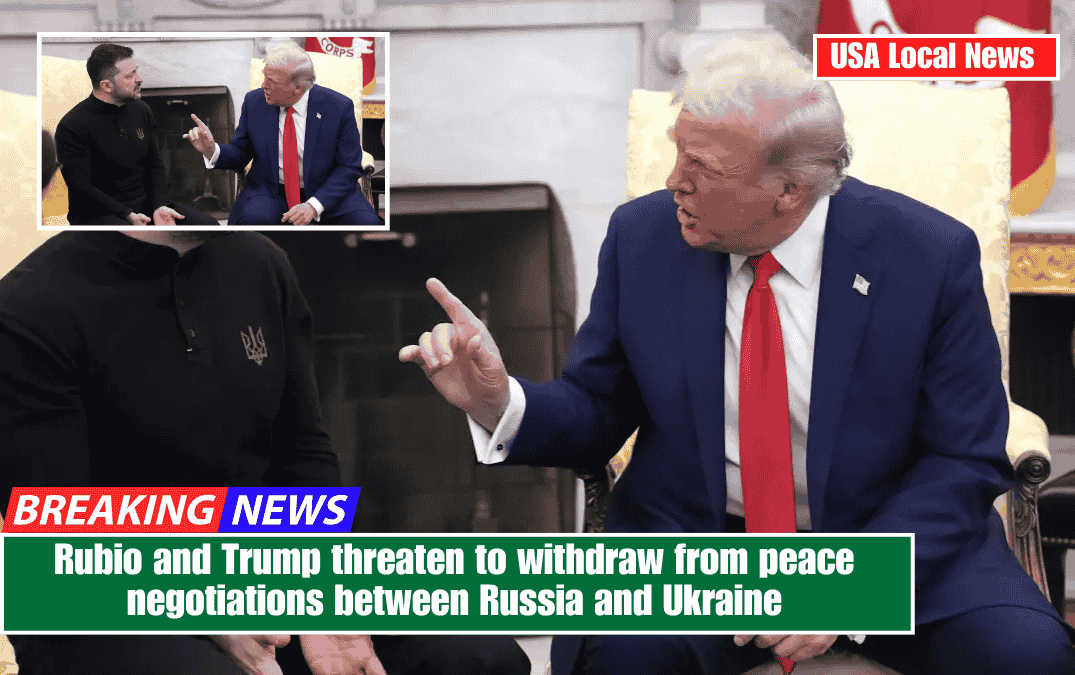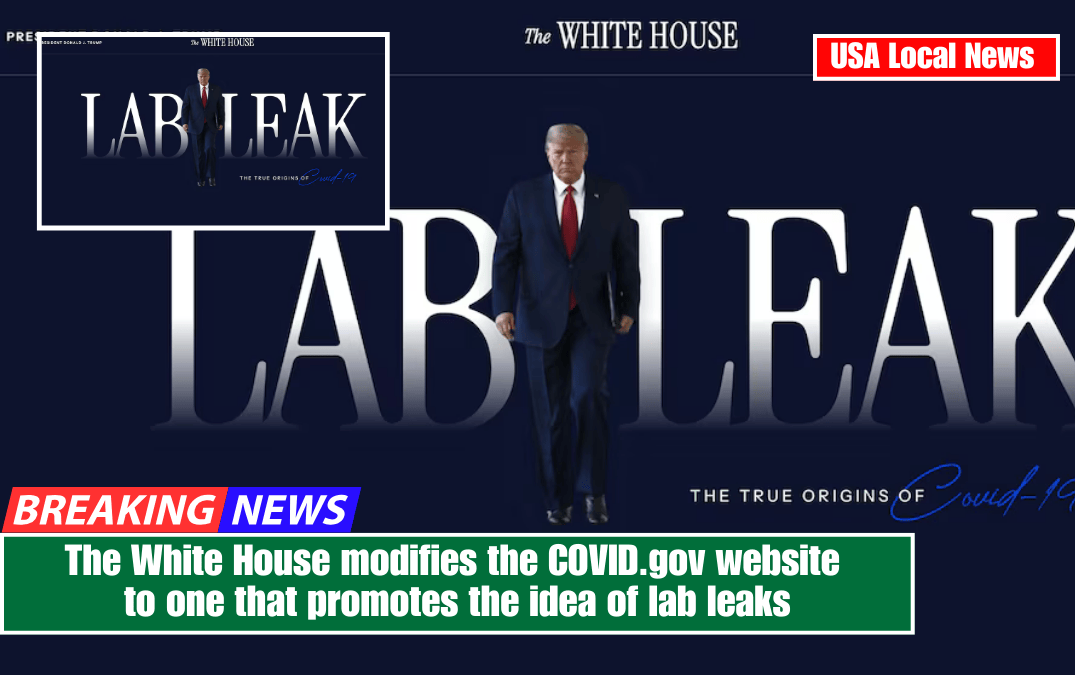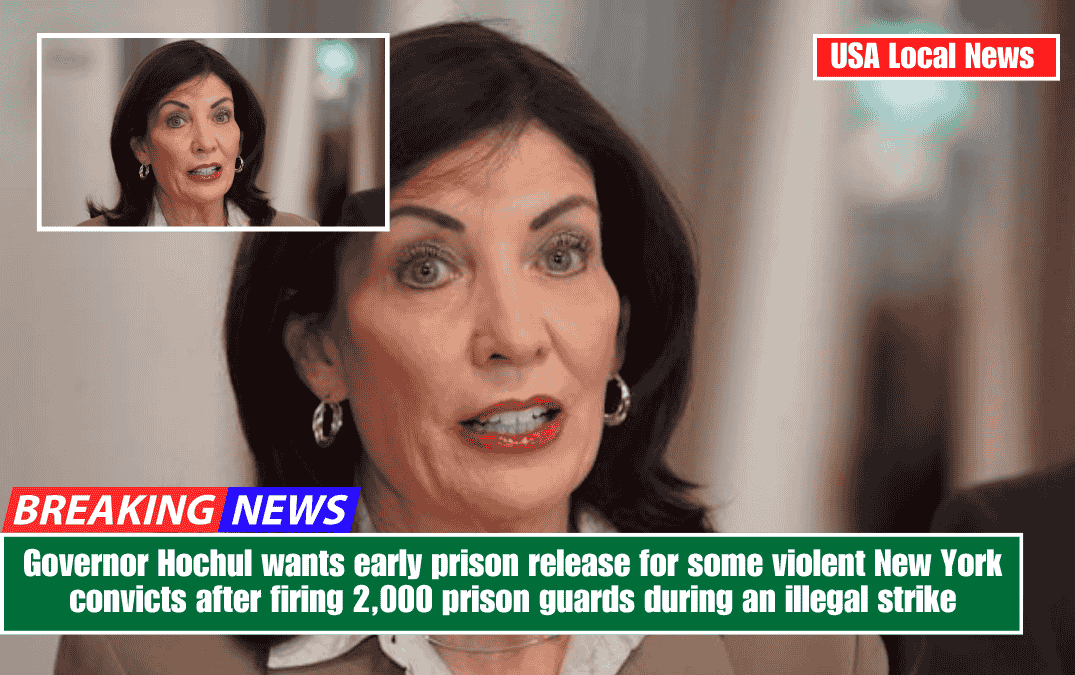After wrapping up what he described as a productive round of talks in Paris to end the war in Ukraine, Secretary of State Marco Rubio issued a surprising ultimatum to all parties involved on Friday, declaring that the United States was willing to withdraw from the negotiations if they did not produce results soon.
“We need to figure out here, now within a matter of days, whether this is doable in the short term, because if it isn’t, I think we’ll just move on,” Rubio said on the tarmac as he flew out of France early Friday morning.
“We have other priorities to focus on as well,” he told reporters. “It’s not our war.”
Later, at the White House, President Donald Trump echoed Rubio’s claim, stating that the United States would make a decision “very shortly.”
“Now, if for some reason, one of the two parties makes it very difficult, we’re just going to say you’re foolish, you’re fools, you’re horrible people, and we’re going to just take a pass,” Trump said, without going into detail about which party. “But hopefully, we won’t have to do that.”
Trump also struck an optimistic tone, declining to say whether he would withdraw from the talks entirely or whether he believed Russian President Vladimir Putin was stalling.
“My entire life has been one massive negotiation. And I can tell when people are playing us and when they aren’t, and I need to see a desire to finish it. “And I believe I see that enthusiasm,” he stated. “I think I see it from both sides.”
While the president declined to set a specific deadline for progress, Rubio saw a new round of talks in London early next week as a potentially decisive engagement, saying he would attend if the meeting appeared to be about action rather than just talk.
The Trump administration’s apparent ultimatum comes as negotiators have grown increasingly frustrated with the lack of progress, particularly from the Russian side.
Officials say the Kremlin has repeatedly demanded relief from economic sanctions in exchange for taking small steps toward peace. Relief for Moscow would necessitate action by both the United States and its allies, which appears to be a step that European leaders are unwilling to take.
“I always remind everybody that part of the sanctions against Russia, many of them are European sanctions that we can’t lift,” Mr. Rubio said.
Rubio attempted to increase the pressure on Moscow during a call with Russian Foreign Minister Sergey Lavrov on Thursday, according to officials familiar with the conversation, who added that the administration hoped to make progress in the hours between their conversation and the secretary’s departure from France.
However, following Rubio’s public comments, Moscow signaled that it was not in a hurry to reach an agreement.
“We believe that certain progress can, in fact, already be acknowledged,” Kremlin spokesman Dmitry Peskov said. “There are already some developments, but, of course, there are still many complicated discussions ahead.”
These developments come as one potential indicator of progress, a 30-day ceasefire designed to halt strikes on energy infrastructure targets, has expired, with no word from Putin on whether Moscow will resume attacks on those targets.
Russia and Ukraine have accused each other of repeatedly violating the agreement, which was mediated by the Trump administration last month.
While it is unclear whether Rubio and Trump’s comments will have an impact on Moscow, they are likely to increase tensions in Kyiv. So far, administration officials have given no indication that the United States will continue to support Ukraine’s war effort if peace talks fail.
“Although the Trump administration is correct to act with urgency, threatening to walk away from the peace talks could inadvertently incentivize Russian intransigence because Moscow will likely calculate that the United States walking away would result in an end to American aid for Ukraine,” said John Hardie, deputy director of the Foundation for Defense of Democracy’s Russia Program.
“Instead, Washington should focus on putting pressure on Russia, including by tightening sanctions on Russian oil revenue,” he said. “Meanwhile, Washington should strive to help Ukrainian forces exhaust Russian offensive potential to show Putin he cannot gain through further fighting.”
If the United States does withdraw from the negotiations, Rubio stated that members of the Trump administration will “do what we can on the margins.”















